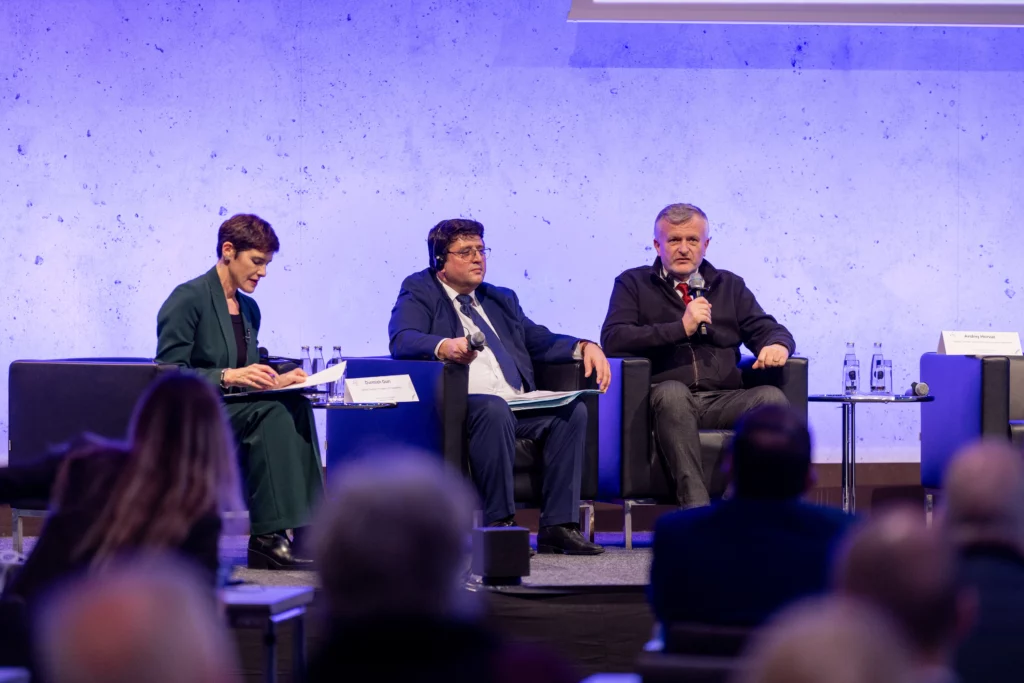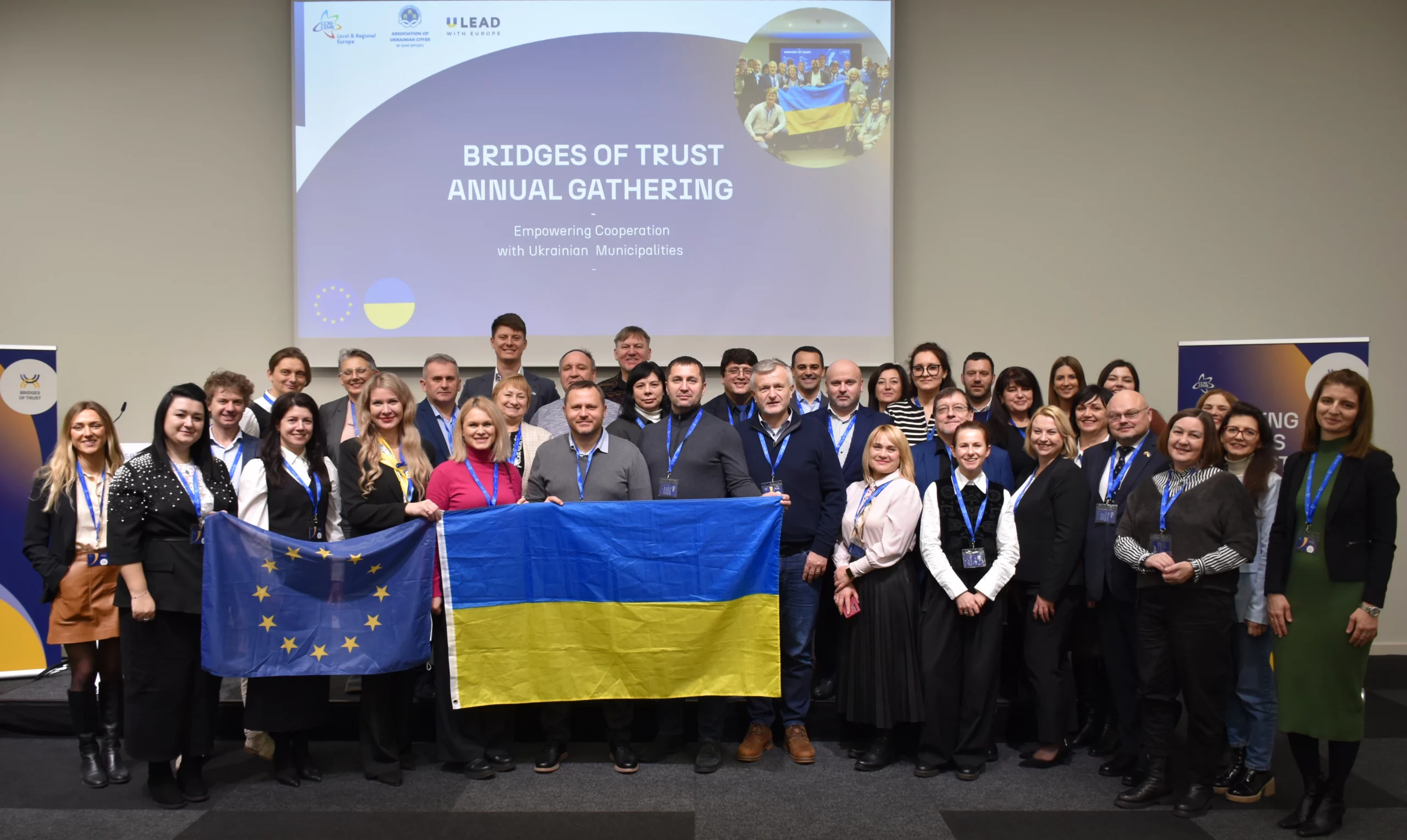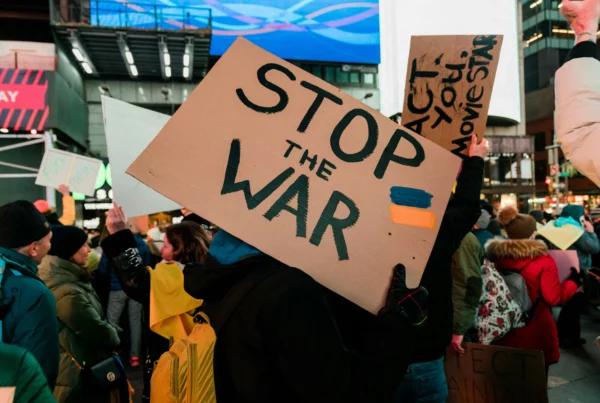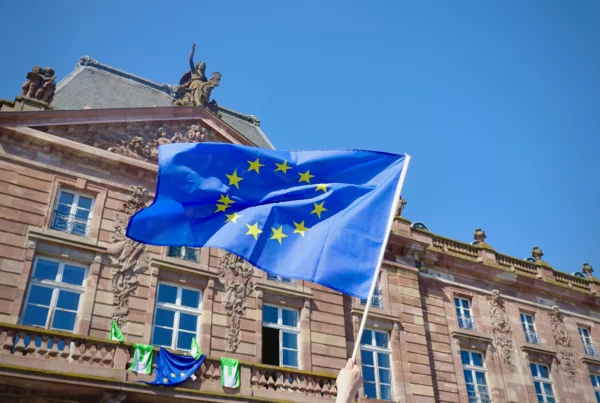Towards Building the Bridges of Trust Community
At the recent Bridges of Trust Annual Gathering*, held alongside the CEMR Leaders’ Summit, a significant step forward was announced with the launch of the Bridges of Trust Community. This new phase marks a transition from bilateral partnerships between EU and Ukrainian municipalities to a cohesive, long-term framework for collaboration. The goal is to deepen existing connections, mobilise continued support in creating new partnerships, and build a lasting network of cooperation to support Ukraine’s recovery and its path toward EU integration. As part of this effort, CEMR is committed to strengthening the spirit of cooperation and ensuring that every Ukrainian municipality is paired with an EU partner, in line with the objectives of the Ukraine Recovery Conference 2024 in Berlin. The creation of these partnerships will be facilitated by the newly launched Matchmaking Platform.
In the framework of the Bridges of Trust project, a survey was recently carried out to assess the effectiveness of the partnerships and identify areas for further development. In fact, the survey was conducted with participating municipalities across 8 European countries: Poland, Latvia, Hungary, Spain, Slovenia, the Czech Republic, France, and Sweden revealing a promising picture of these evolving partnerships. With 80% of the partnerships demonstrating moderate to high levels of interaction, and 67% having formal agreements in place, these collaborations are already making a significant contribution to a resilient, united Europe. This data underscores the potential of the Bridges of Trust Community as a dynamic, long-term platform for cooperation, one that will grow and adapt to the needs of both Ukraine and the EU local governments in the years ahead.

Focus Areas of Cooperation:
- The majority of municipalities are engaged in Youth, Cultural and Educational initiatives. Municipalities such as Kuldīga (Latvia), Bourges (France), Mińsk Mazowiecki (Poland), Tyresö (Sweden), and Budakeszi (Hungary) are emphasising the importance of cultural diplomacy, youth policy, and educational initiatives.
- More than half of the municipalities are actively involved in energy efficiency and modernisation efforts. Municipalities such as Česká Třebová (Czech Republic), Budakeszi (Hungary), Puconci (Slovenia) and La Rochelle (France) have prioritised climate action, collaborating on green energy projects, energy efficiency improvements, and sustainable urban development.
- A significant number of municipalities are also focused on emergency and humanitarian support. Bourges (France) and Sieradz (Poland) have led efforts in providing emergency aid, while others like Mińsk Mazowiecki (Poland) and Budakeszi (Hungary) have contributed to relief efforts for displaced populations and emergency infrastructure repairs. This includes essential supplies, housing for displaced persons, and rapid infrastructure repairs to ensure the basic functioning of Ukrainian municipalities during the crisis.
- Almost half of the municipalities are engaged in governance and capacity-building activities. Such as Radzymin (Poland), Kuldīga Municipality (Latvia), Gulbene (Latvia), Puconci (Slovenia), are committed to strengthening local governance systems. This includes capacity-building efforts focused on crisis management, rebuilding governance structures, and ensuring municipalities can effectively manage their recovery processes.
- Over a third of municipalities are active in the economic and business sectors. San Sebastián (Spain), Sieradz (Poland), Puconci (Slovenia), Gulbene (Latvia), and Kuldīga (Latvia), along with other municipalities, have focused on fostering economic ties, supporting local businesses, and creating collaborative opportunities for cross-border trade and entrepreneurship.
Achievements:
- Formal Agreement: Half of the municipalities have formalised their partnerships with Ukrainian counterparts through Memorandums of Understanding or cooperation agreements, while another 40% are in the process of doing so. Beyond the survey results, a new cooperation agreement was signed at the Bridges of Trust Annual Gathering by Mayor Saulius Margis of Pakruojis (Lithuania) and Mayor Alla Myronova of Inhulka (Ukraine).
- Crisis Response: Several municipalities, such as Bourges and Korosten, provided emergency assistance during the early stages of the war.
- Knowledge Sharing: Peer-to-peer learning and exchange of best practices were cited as significant successes by more than half of the participants.
While the difficulties in accessing funds and the ongoing Russian war against Ukraine were identified as significant challenges – an encouraging trend emerges: nearly 80% of partner municipalities have already planned or are in the process of planning activities for the next six months. This demonstrates a strong commitment to maintaining and expanding their cooperation despite the obstacles, highlighting the resilience and determination of local governments to foster meaningful partnerships and drive impactful initiatives even in complex contexts.
The survey results reflect a shared commitment to facing both immediate challenges and long-term goals. In the months and years ahead, the Bridges of Trust Community will be essential in fostering the ongoing exchange of knowledge, support, and innovation between EU and Ukrainian municipalities, reinforcing the collective effort to support Ukraine’s recovery on the path to EU membership.
*Since 2021, the Council of European Municipalities and Regions (CEMR), in partnership with the Association of Ukrainian Cities (AUC) and EU national associations, has been implementing the Bridges of Trust project. Supported by U-LEAD with Europe, this fosters connections between EU and Ukrainian municipalities to tackle pressing challenges, including reconstruction, recovery, and institutional modernisation.

Project Officer – International Partnerships (U-Lead)






